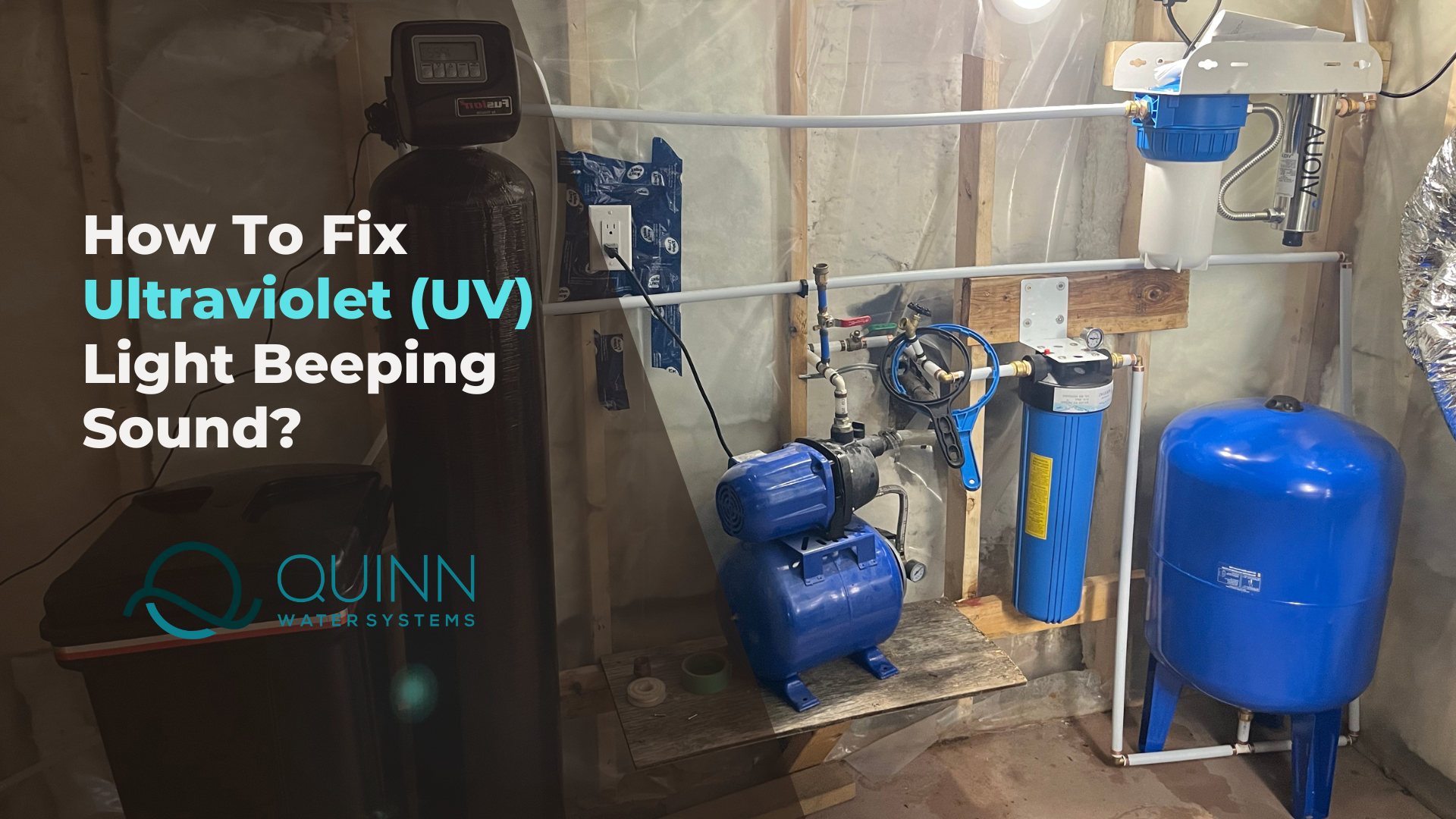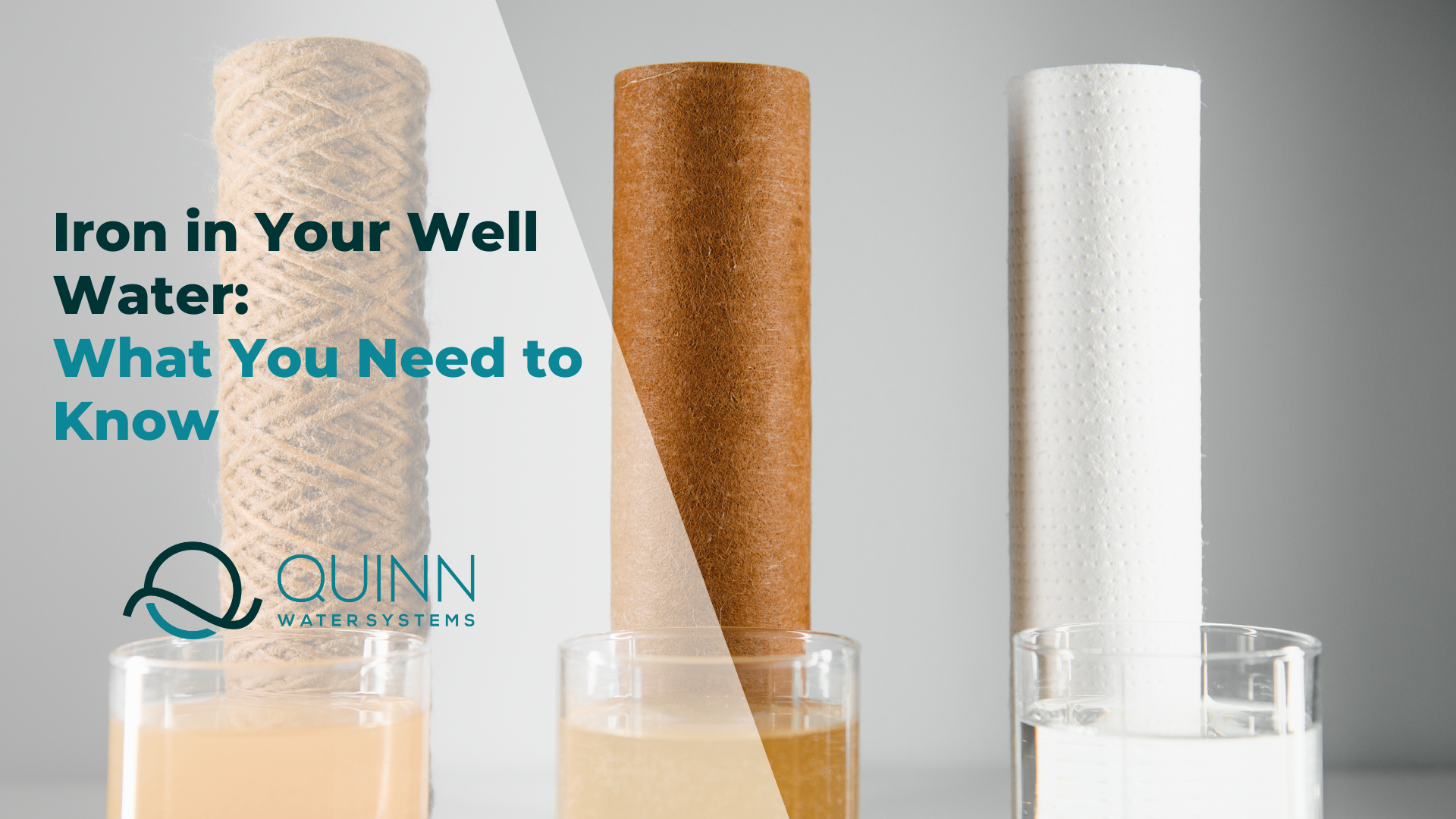Complimentary Well Water Inspection for New Customers
The Hidden Dangers: Arsenic Contamination in Well Water Ontario
Safe and clean drinking water is a fundamental necessity for every homeowner, ensuring the well-being and health of their family. However, there's a hidden danger lurking in many well water sources across Ontario: arsenic contamination. Arsenic, a toxic chemical, can find its way into well water through natural deposits or human activities, posing serious health risks when consumed over the long term. In this blog post, we will explore the hidden dangers of arsenic contamination in well water, with a specific focus on Ontario homeowners.

Understanding Arsenic Contamination
What is arsenic and its sources in well water?
Arsenic is a naturally occurring element found in the Earth's crust, and it can exist in both organic and inorganic forms. Inorganic arsenic is the more toxic form and poses a greater risk to human health. Arsenic can enter well water through various sources, including geological formations, mining activities, agricultural practices, and industrial discharges. In some cases, well water may already contain arsenic due to geological factors, such as the presence of arsenic-rich rocks or minerals in the surrounding area.
How does arsenic contamination occur in Ontario well water?
In Ontario, the presence of arsenic in well water can be attributed to the province's geology. Certain regions, such as parts of the Canadian Shield, have naturally occurring arsenic in the bedrock, which can leach into the groundwater over time. Additionally, human activities like mining, industrial operations, and agricultural practices can introduce arsenic into the environment, potentially contaminating nearby wells.
Health risks associated with long-term exposure to arsenic
Long-term exposure to arsenic-contaminated well water can have severe health implications. Arsenic is a known human carcinogen, meaning it can increase the risk of developing various types of cancer, including skin, bladder, lung, and kidney cancers. Furthermore, arsenic exposure can lead to non-cancerous health effects, such as skin lesions, cardiovascular diseases, neurological disorders, and developmental issues in children. The health risks associated with arsenic contamination underscore the importance of addressing this hidden danger in well water.
As we delve deeper into this topic, we will explore the signs of arsenic contamination, legal guidelines in Ontario, testing and treatment options, and actionable steps homeowners can take to protect their well water and the health of their families.
Recognizing the Signs of Arsenic Contamination
Common symptoms and health effects of arsenic exposure
Exposure to arsenic-contaminated well water can lead to various symptoms and health effects. These can include skin problems such as discolouration, rashes, and lesions, as well as the development of thickened skin on the palms and soles of the feet. Other health effects may include gastrointestinal issues, respiratory problems, cardiovascular complications, and neurological disorders. It's crucial to be aware of these signs and seek medical attention if you suspect arsenic exposure.
How to identify if your well water is contaminated with arsenic
Unfortunately, arsenic is odourless, tasteless, and colourless, making it difficult to detect contamination without proper testing. Visual inspection alone cannot determine the presence of arsenic in well water. The only way to know for certain if your well water is contaminated with arsenic is through laboratory testing. Therefore, it's essential for homeowners relying on well water to regularly test their water for arsenic and other potential contaminants.
Importance of regular water testing for arsenic levels
Regular water testing is vital to ensure the safety of your well. Arsenic levels can fluctuate over time, and the only way to accurately assess the arsenic content is through periodic testing. By conducting regular tests, you can promptly identify any changes in arsenic levels and take appropriate measures to mitigate the contamination. Professional water testing services can provide accurate results and help you understand the steps needed to safeguard your water supply.
Legal Guidelines and Regulations in Ontario
Overview of Ontario's regulations for arsenic in well water
Ontario has established regulations to protect residents from contaminants, including arsenic, in drinking water. These regulations set guidelines for acceptable arsenic levels in well water to ensure the safety of consumers. Familiarizing yourself with these regulations is essential for understanding the standards to which your well water should adhere.
Acceptable levels of arsenic and the significance of compliance
The acceptable level of arsenic in well water, as determined by Ontario regulations, is 0.01 mg/L (10 parts per billion). Compliance with this standard is crucial for maintaining the health and well-being of your household. It's important to note that even concentrations below the regulatory limit can still pose health risks, so minimizing arsenic levels as much as possible is advisable.
Responsibility of homeowners in maintaining safe water quality
As a homeowner relying on well water, it is your responsibility to ensure the quality and safety of your water supply. This includes regular water testing for arsenic and other contaminants, taking necessary actions if contamination is detected, and implementing appropriate water treatment technologies to address the problem. By staying proactive and informed, you can safeguard your water and protect the health of your family.
If you do have an arsenic level in your water that is higher than is safe or tolerable to you, there are water treatment technologies available to address the problem. In the upcoming sections, we will explore these treatment options and provide guidance on selecting the most suitable method for mitigating arsenic contamination in your well water. Stay tuned to learn more about protecting your water supply and ensuring a healthier living environment.
Treatment methods for arsenic removal in well water
Quinn Water Systems, a trusted provider of water treatment solutions, offers various technologies for effective arsenic removal. One method that has shown success is through oxidation and filtration, particularly in conjunction with iron removal systems. Arsenic tends to bind with iron oxide minerals, so a system designed to remove iron can also help eliminate arsenic to safe levels. It's important to note that cartridge filters alone may not be sufficient for arsenic removal. Point-of-use units, which treat water at the tap, may also be an option in cases where point-of-entry treatments are not feasible.
Following the installation of a treatment device, regular testing is crucial to verify its effectiveness and ensure ongoing treatment of arsenic. It is recommended to have your water quality tested at least annually and consider a maintenance agreement to keep the treatment system in optimal condition.
When selecting the right treatment system for your well water, it's important to consider factors such as the level of arsenic contamination, the presence of other contaminants, and the specific requirements of your household. Consulting a local water professional is highly advised to ensure you choose a system that meets your needs effectively.
Empower yourself and your community to take action and prioritize the well-being of your well water and health!
Get a Consultation
We will get back to you as soon as possible.
Please try again later.
Blog Posts





Get Your Water Done RIGHT!
About Us
Client Portal
Client Hub is set up for our clients approve quotes, check appointment details, pay outstanding invoices, print receipts, or request more work-all in one place.
Payment Options



